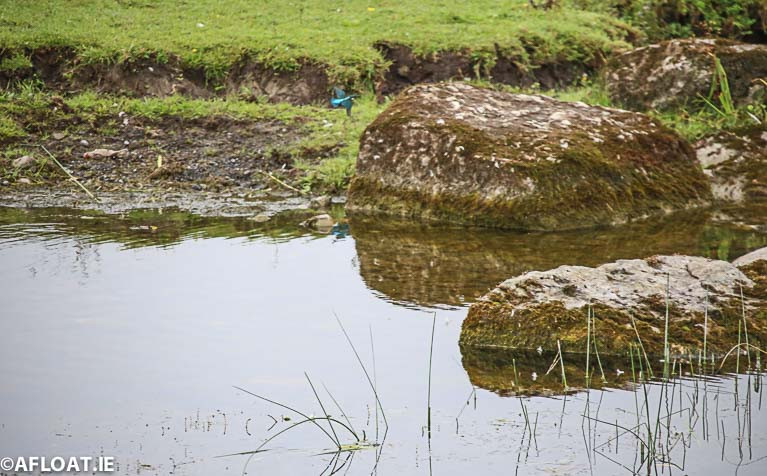Displaying items by tag: farmer
Water Pollution Appeal to Farmers Land-Spreading
Inland Fisheries Ireland has issued an appeal to farmers to remain vigilant during the fertiliser spreading season to avoid water pollution and the loss of nutrients or other chemicals into rivers, lakes and other watercourses.
The appeal comes on the back of Inland Fisheries Ireland’s preliminary collation of fish kill data for 2019 which indicate that 20 fish kills were recorded nationally (a welcome reduction when compared with 40 fish kills in 2018). Inland Fisheries Ireland is also emphasising the significance of the EPA’s recent report on water quality in Ireland (for the period 2013 to 2018) which found that there has been an overall decline in surface water quality, especially in our rivers, for the period. This report identified nutrient pollution (primarily nitrogen and phosphorus) as the main problem impacting on our waters.
To prevent waters from being polluted by nitrogen and phosphorus when land-spreading, Inland Fisheries Ireland is advising farmers to refer to Good Agricultural Practice Regulations guidance (www.agriculture.gov.ie) which advises as follows:
- Spread livestock manure and other organic fertilisers, effluents and soiled water as accurately and as evenly as possible.
- Do not use an upward-facing splash plate or sludge irrigator on a tanker or umbilical system for spreading organic fertiliser or soiled water.
- Do not spread organic fertilisers or soiled water from a road or passageway, even if the road or passageway is on your own holding.
- Do not spread chemical fertilisers, livestock manure, soiled water or other organic fertilisers when:
- The land is waterlogged;
- The land is flooded, or it is likely to flood;
- The land is frozen, or covered with snow;
- Heavy rain is forecast within 48 hours (you must check the forecasts from Met Éireann).
- Do not spread chemical fertilisers, livestock manure, soiled water or other organic fertilisers if the ground has a steep slope and if there is a significant risk of causing pollution.
- When you are deciding whether there is a risk, you must take into account how close you are to waters, what condition the soil is in, the ground cover and how much rainfall there is or how much rainfall is expected.
- Do not spread chemical fertiliser on land within 1.5 metres of a surface watercourse.
Farmers can get more information about these specifications or related buffer zones for spreading organic fertilisers from their adviser/consultant, the local Department office or on the Department of Agriculture Food and the Marine’s website http://www.agriculture.gov.ie.
Dr Greg Forde, Head of Operations at Inland Fisheries Ireland, said: “Livestock manure and other organic fertilisers, effluents and soiled water have the potential to cause devastating pollution in our streams and rivers. Such effluent is a significant polluting and potentially highly toxic substance, starving fish and other aquatic life of oxygen and resulting in potentially severe fish kills over long distances if it enters a watercourse. Impacts can be devastating at any time of year but are magnified in particular when river flows are reduced and dilution capacity is at a minimum. The effect of even a small leak under these conditions can cause huge damage. Inland Fisheries Ireland is grateful to the farming community for their continued consideration and vigilance. Good farmyard management and land-spreading practices (for example avoiding spreading during the season at times of low nutrient uptake because of slow growth) can help to prevent accidental discharges of polluting substances and protect the local environment. This will have a significant and lasting positive impact on valuable wild fish populations in an area.”
Inland Fisheries Ireland is the state agency responsible for the protection, management and conservation of Ireland's inland fisheries and sea angling resources. IFI focuses on a wide range of environmental pressures which can impact the fisheries resource, with over 25,000 environmental inspections carried out in 2019 across industrial, forestry, engineering / infrastructural and municipal sites. There were 1,623 inspections in agricultural settings to help identify environmental risks and prevent damage to the local aquatic environment and valuable fish populations.
Kid's Four Foot Yacht Completes Transatlantic Mission
A four foot yacht containing goodwill messages from children in the US state of Maine has landed on the west coast of Ireland, more than a year after it was launched. The craft survived at least two hurricanes on its journey of more than 4,000 miles across the Atlantic Ocean. A farmer stumbled across the unique vessel after it was washed up on a Co Mayo beach. The Irish Independent has the full story HERE.































































